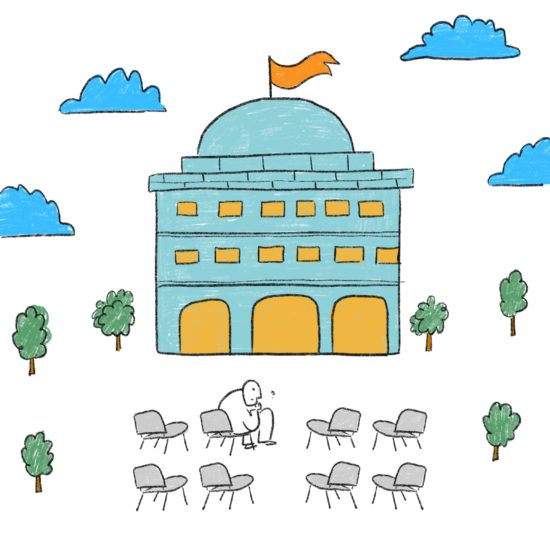
The University of Saskatchewan Students’ Union hosted college town halls to discuss key issues with students. A report on findings is now out.
The town halls took place over a two-week period from March 1 to March 12. The USSU organized them alongside the Association of Constituency Presidents. The colleges that participated in the town halls included Veterinary Medicine, Education, Pharmacy and Nutrition, Arts and Science, Kinesiology, Agriculture and Bioresources, St. Thomas More, Medicine and Law.
The purpose of the town halls was to allow students to share their experiences during COVID-19 and ask the USSU questions, so that the union could get a better understanding of student life in specific colleges, says USSU president Autumn LaRose-Smith. Student turnout varied from two to around 60 students, depending on the college.
Online labs were one of the biggest topics of concerns that students raised. Students felt that online labs were not giving them the skills necessary to move forward in their academic career and their post-graduate career, LaRose-Smith says.
“The lack of in-person experiences and in those labs has affected their learning,” LaRose-Smith said. “Some students [said it] affected their opportunities for internships and employment because they didn’t have that hands-on experience.”
Another common theme across the town halls was students’ desire to better connect with their professors and the USSU. Students are hoping for a better feedback system with their professors and a better effort from the USSU in terms of communication.
The participating students appreciated the town halls, says LaRose-Smith.
“They … really liked the fact that we were doing the town halls and want to see more of them moving forward,” LaRose-Smith said.
Ryan O’Connell, the University Student Council STM councillor, says student turnout at the town halls was quite low. He says the USSU could have done a better job at marketing the events.
“It was mostly executive members who were engaging, not necessarily general members and students outside of the governance,” O’Connell said.
“We probably need to promote these as bigger events and try to incentivize them more … because they are very important to us and our work, but it’s very difficult when we don’t always have the students coming out.”
The report resulting from the town halls is being shared widely. LaRose-Smith said she is sharing it with the Association of Constituency Presidents, the Deans’ Council, the President’s Executive Committee and all the provosts and vice-presidents at the U of S.
“The report is going to have a lot of information [about] what students are speaking to within the town hall, and some steps to move forward for the USSU,” LaRose-Smith said.
“The purpose of it is to provide that cross-college understanding,” LaRose-Smith said.
O’Connell says he wishes the USSU executive had done these town halls sooner so that recommendations could have been made earlier in the year.
“The executive has promised to put all of those recommendations forward and they have been very transparent with them,” O’Connell said.
Since the current USSU executive’s term in office is coming to a close, LaRose-Smith says this report will be useful for the incoming executive to start working right away on addressing the collected student feedback.
“This was an effort to get as much information as we can to help transition the next executive, because our executive could never have predicted any of the concerns around what the year has been like with COVID,” LaRose-Smith said.
“This is going to give the next year’s executive, once they come in, a really thorough transition opportunity so that they can hit the ground running.”
—
Wardah Anwar | News Editor
Graphic: Anh Phan | Graphics Editor